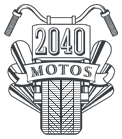Lead Ban Exemption for Youth OHV Passes House and Senate
Tue, 02 Aug 2011Finally, some legislative news out of Washington that doesn’t involve the phrase “debt ceiling”. The U.S. House and the Senate have passed a bill that would exempt youth off-highway vehicles from the Consumer Product Safety Improvement Act, also known as the “lead ban”.
The House approved the bill, H.R. 2715, which amends the CPSIA to exempt off-highway vehicles and gives the Consumer Product Safety Commission the discretion to allow other exemptions.
The bill, introduced by Reps. Mary Bono Mack (R-Calif.) and G.K. Butterfield (D-N.C.), was approved by a 421-2 vote on Aug. 1, and later that day passed unanimously through the Senate. The bill now awaits the signature of President Barack Obama before it becomes law.
Enacted in 2008, the CPSIA was designed to prohibit the sale of products containing certain levels of substances such as lead. As a result, the CPSIA banned the sale of youth OHVs because of traces of lead. The CPSC, which enforces the CPSIA, put a stay on enforcement of the act when it comes to OHVs, as various groups lobbied for an amendment.
[Source: AMA, MIC]
Bill to exempt kids’ off-highway vehicles from lead law sent to president
The U.S. Senate has approved a House bill to exempt kids’ off-highway vehicles (OHVs) from the lead law that essentially bans the sale of those machines at the end of the year, the American Motorcyclist Association (AMA) reports.
The bill, H.R. 2715 introduced by Reps. Mary Bono Mack (R-Calif.) and G.K. Butterfield (D-N.C.), cleared the full House by a 421-2 vote on Aug. 1, and then earned approval in the Senate the same day. The bill now goes to President Obama to be signed into law.
“We’re extremely pleased that members of both parties in both houses of Congress have agreed to exempt kids’ dirtbikes and all-terrain vehicles from the lead law that would have effectively banned them at the end of the year,” said AMA Washington Representative Rick Podliska.
“It is time for this nearly three-year ordeal to be over so America’s motorcycling and ATV-riding families can once again ride with the peace of mind that their lifestyle will no longer be threatened by this misguided lead law,” Podliska said. “I particularly want to thank Rep. Denny Rehberg (R-Mont.) and Sen. Amy Klobuchar (D-Minn.) for their tireless efforts to exempt youth OHVs from the lead law. Their efforts have paid off.”
The legislation exempts OHVs — including kids’ dirtbikes and all-terrain vehicles (ATVs) — from the Consumer Product Safety Improvement Act (CPSIA) of 2008.
The CPSIA bans the making, importing, distributing or selling of any product intended for children 12 and under that contains more than a specified amount of lead in any accessible part. It also requires all children’s products undergo periodic testing by independent laboratories approved by the Consumer Product Safety Commission (CPSC), which is responsible for implementing the law.
The CPSC has delayed enforcing key portions of the law until after the end of the year. Unless the CPSIA is changed by then, the sale of child-sized dirtbikes and ATVs will effectively be banned.
The CPSIA was designed to ban small toys with high lead content. But because of broadly written language in the law, it has been interpreted to apply to all products for kids 12 and under, including dirtbikes, ATVs, bicycles, clothing and books.
The AMA has been at the forefront of the fight to exclude child-sized motorcycles and ATVs from the CPSIA for more than two years. The association has participated in news events to focus media attention on the issue, lobbied on Capitol Hill, and organized campaigns to encourage riders and parents to contact their federal lawmakers and key decision-makers to exempt kids’ OHVs from the CPSIA.
As a result, every single member of Congress, as well as members of the CPSC, has received powerful statements from members of the AMA and the All-Terrain Vehicle Association (ATVA), which is a partner organization of the AMA.
The AMA magnified these efforts through its “Kids Just Want to Ride” campaign. To read more of what the AMA has done for the past three years in its efforts to exempt kids’ OHVs from the CPSIA, go to http://www.americanmotorcyclist.com/Rights/KeepKidMotorcyclesAndATVsLegal.aspx.
Senate Joins House in Passing Bill to Exempt Youth ATVs and Dirtbikes from CPSIA’s Lead Content Provisions
WASHINGTON, August 1, 2011 – The U.S. Senate tonight quickly joined the House of Representatives in passing H.R. 2715, which amends the Consumer Product Safety Improvement Act (CPSIA) to categorically exclude youth ATVs and dirtbikes from the lead content provisions.
“For more than two years, the powersports industry and its riders have urged Congress to categorically exclude youth dirtbikes and ATVs from the CPSIA’s lead content provisions,” said Paul Vitrano, general counsel of the Motorcycle Industry Council (MIC). “ATVs and dirtbikes do not present any lead-related health risk to young riders, and Congress has made it clear that it never intended the lead content restrictions and testing requirements for toys to apply to these vehicles. We are gratified that our community’s passion and perseverance have paid off and now both houses of Congress have passed the bill containing categorical exclusions in the same day.”
Once President Obama signs the bill, the ban on youth model vehicles finally will end.
“On behalf of riders everywhere, we thank the Senate for its quick action on H.R. 2715 to reverse the unintended ban on youth ATVs and motorcycles,” added Vitrano. “In particular, MIC and its members thank Sen. Amy Klobuchar (D-MN) for her dedication and leadership in ensuring that youth powersports vehicles are available for our youngest riders to safely and responsibly enjoy with their families.”
The Motorcycle Industry Council exists to preserve, protect and promote motorcycling through government relations, communications and media relations, statistics and research, aftermarket programs, development of data communications standards, and activities surrounding technical and regulatory issues. As a not-for-profit, national industry association, MIC seeks to support motorcyclists by representing manufacturers and distributors of motorcycles, scooters, motorcycle/ATV/ROV parts and accessories, and members of allied trades such as insurance, finance and investment firms, media companies and consultants.
The MIC is headquartered in Irvine, Calif., with a government relations office in metropolitan Washington, D.C. First called the MIC in 1970, the organization has been in operation since 1914. Visit the MIC at www.mic.org.
By Dennis Chung

